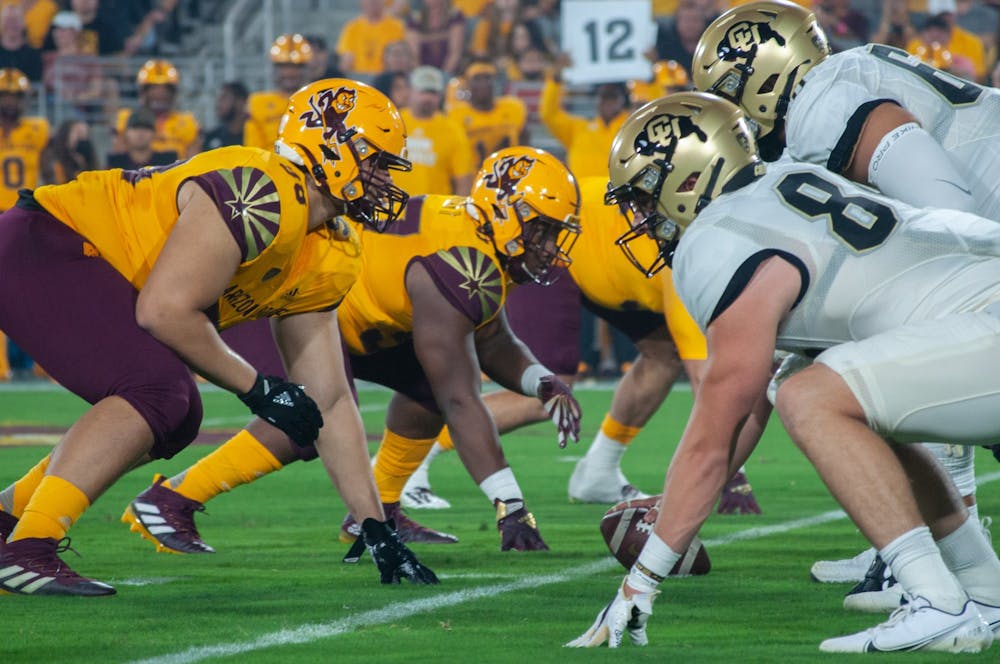The Colorado Board of Regents unanimously approved University of Colorado-Boulder's move from the Pac-12 to the Big 12 last week, in a move that sent shockwaves across the college sports landscape.
The previous night, Big 12 Presidents and Chancellors voted to accept the Buffaloes into the conference, also unanimously. This upcoming year will be Colorado's last in the Pac-12, where it has spent the last 12 years competing in athletic competitions against ASU, UA, and others.
The decision leaves the Pac-12 with just nine members starting in 2024 after Colorado’s decision and last summer’s departures of USC and UCLA to the Big Ten. To stave off further defections, the conference must generate stability for its remaining members. That begins with finalizing and signing a media rights agreement for its members’ sporting events.
For over a year, Pac-12 commissioner George Kliavkoff has been negotiating with TV networks and streamers to secure a home for broadcasts of Pac-12 sporting events, particularly football and men’s basketball, which generate the most revenue. The Pac-12’s current deal with ESPN and Fox pays each member school nearly $21 million annually but expires in summer 2024. All media rights deals must be approved by the conference’s board of Presidents and Chancellors, which includes ASU President Michael Crow.
Apprehension over the Pac-12’s media rights future was likely a key factor in the defections of USC, UCLA and now Colorado to conferences with long-term media rights security.
“(Colorado athletic director Rick George) and I are of the strong belief that a move to the Big 12 conference will set CU-Boulder up for long-term success and will provide stability in an era of unprecedented change,” Colorado Chancellor Phil DiStefano told the Colorado Board of Regents before the vote.
Universities across the country rely on income from TV rights deals for university operations and investments in athletics programs. Additionally, exposure to athletics on TV is a key tool for schools when recruiting students and generating enrollment.
ESPN’s Pete Thamel reported Tuesday that Kliavkoff presented a media rights offer at a meeting with Pac-12 Presidents and athletic directors that would entail Pac-12 sports being primarily hosted on Apple TV, a streaming service, with yearly payouts likely falling well short of the Big 12’s. The meeting ended without a vote on the agreement.
Last October, The Big 12 agreed to a six-year extension of its current media rights deal that will grant each member school nearly $32 million per year, starting in 2025.
According to Pac-12 insider John Canzano, some Pac-12 Presidents and Chancellors have signatory power to okay a deal on behalf of their university, but others must seek approval from their school’s board to make determinations of this financial magnitude, which may explain why Tuesday’s meeting didn’t yield a completed deal.
UArizona has been most closely linked to the Big 12 as its next and most receptive expansion target, and Big 12 Commissioner Brett Yormark has been open about basketball being a driving force in realignment decisions. UA has won five of the last eight men’s basketball Pac-12 Conference Tournaments, and its women’s basketball team made the national championship game in 2021. Their departure would push the Pac-12 further toward collapse and could leave ASU scrambling to determine the future of its conference affiliation.
It could also create friction within the Arizona Board of Regents, which governs the state’s three largest public universities, ASU, UA and NAU. On Monday, the Board announced an emergency session scheduled for 3:30 p.m. Tuesday, and closed the meeting to the public. ABOR did not respond to a request for comment.
Through the chaos, Crow has remained a steadfast Pac-12 supporter. He was a strong supporter of previous conference commissioner Larry Scott.
Crow told the State Press in March that "there have been no discussions with the Big 12 conference on moving,” and that “we are committed to the Pac-12."
Edited by Shane Brennan.
Reach the reporter at awakefi3@asu.edu and follow @_alexwakefield on Twitter.
Like The State Press on Facebook and follow @statepress on Twitter.




